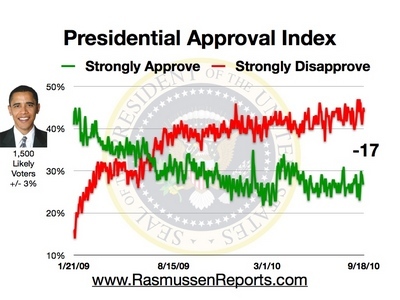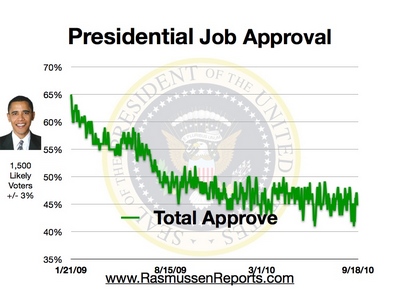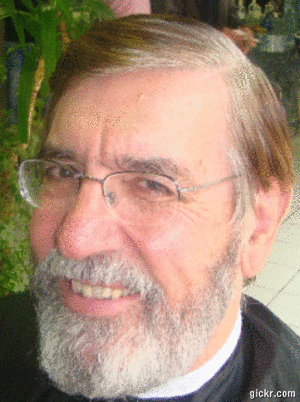|
|
| Blog |
 |
| Archive |
|
|
|
|
| Blog |
| To find an archived article, simply click on Index and scroll the subject titles, or do a Ctrl-F search |
TALLRITE BLOG You can write to me at blog2-at-tallrite-dot-com |
||||||||||||||||||||||||||||||||||||||||||||||||||||||||||||
|
“Ill-informed and
objectionable”;
“You poisonous, bigoted, ignorant, verbose little wa*ker.” (except I'm not little - 1.97m) Reader comments |
||||||||||||||||||||||||||||||||||||||||||||||||||||||||||||
|
September 2010 |
||||||||||||||||||||||||||||||||||||||||||||||||||||||||||||
|
|
||||||||||||||||||||||||||||||||||||||||||||||||||||||||||||
|
Flash Clocks, Video Clocks at WishAFriend.com |
||||||||||||||||||||||||||||||||||||||||||||||||||||||||||||
|
||||||||||||||||||||||||||||||||||||||||||||||||||||||||||||
|
ISSUE #209 - September 2010 [348+1686=2034] |
||||||||||||||||||||||||||||||||||||||||||||||||||||||||||||
|
Daily poll on President Obama’s popularity; date is on the charts. (Click to get the latest version.) |
||||||||||||||||||||||||||||||||||||||||||||||||||||||||||||
|
||||||||||||||||||||||||||||||||||||||||||||||||||||||||||||
|
I have no idea whether this account is truth or myth, but it makes a great story! But where or where is the UN Human Rights Council when you need it!
With a man-buster like this, you can understand where the Americans got the name for their deadly ballistic nuclear Pershing missile, which frightened the wits out of the Soviets during the 1980s.
|
||||||||||||||||||||||||||||||||||||||||||||||||||||||||||||
|
Only New Governments Can Clean Up Mess I worked for decades in the oil and gas exploration and production business, traipsing from desert to ocean to jungle and back in the interminable search for the black stuff and its miasmic cousin. It was/is a business where it is customary for staff like me to be moved from a subsidiary in one country to one in another. This has the twin benefits of
That was the official philosophy, and it was borne out in practice. It was remarkably effective in spreading best practice, as developed in different parts of the world, into multiple subsidiaries across the global corporation for which I worked. But regular changing out of senior personnel had another interesting if unarticulated effect. A new person coming in to an established job could not only introduce fresh ideas. He/she could equally abandon previous projects if deemed inappropriate. The value of this should never be underestimated. For every good idea there are probably two bad ones; the nature of progress is to quickly recognize the bad ones as bad, to drop them and to seek out fresh paths. But this simple concept conflicts with human nature. Suppose I spend a year pursuing a dream in a particular direction, but it is getting nowhere. I am unlikely to thank a colleague for pointing this out to me; I am even less likely to acknowledge my failure to others (or even to myself). And even when my flop becomes unmistakeable, I will find it increasingly difficult to change direction or to abandon the effort, because to do so is to admit I have been wasting everyone's time for the past year, and we all have our pride, dammit. It takes an especially big human being to confess to his or her mistakes, even implicitly. So each time you rotate people out of senior jobs, you provide a clean slate for the new man or woman who
The organization is refreshed. Meanwhile the person who has departed is also refreshed, has learnt a great deal and starts with a similarly clean slate in his/her new position. Everyone wins, every business wins. So it is with Governments. They also do both good things and bad things. Naturally they and everyone exult in the successes and try to do more of them. But being made up of humans, it is likewise very difficult for Governments to recognize their mistakes and even harder to change direction. That's why entrenched Governments generally just get worse and worse. The bad things don't get corrected and so continue to deteriorate until they eventually overwhelm the good things, just as urine added to fine wine ruins the entire bottle. North Korea, Cuba, Venezuela, Egypt, Zimbabwe to name just a few countries which autocracies have ravaged. That's the beauty of democracy. The people have the chance not just to throw the rascals out every few years, but to institute change for the mere sake of change. For a changed government is not bound by the mistakes of the previous one; it has no baggage; it can start with a clean slate. It is likely that the new regime will try to undo past mistakes, continue with what is working and institute new projects of its own - which in turn may be good or bad. We are seeing this most dramatically the UK. After the economic collapse of 2008, the eleven-year-old Labour Government, as author of the economic policies that created first the boom then the inevitable bust, found itself paralysed when it came to taking decisive action. It talked incessantly about having the “courage” to take the “hard decisions” - presumably expenditure cuts and tax increases - but always next year, never now. But how could it ever take those hard decisions, when each of them would be
During last May's General Election campaign the Tory opposition, of course, said much the same about vague, unspecified future “hard decisions”, not wanting to frighten the electorate. But once the Tories won and set themselves up in coalition with the vegetarianist Liberal Democrats it was a different story. The electorate was quickly told there would be savage cuts of up to 40% in the coming budget. These are on the not unreasonable basis that if you are spending way more than your income you should above all reduce your spending. Nobody ever got out of debt by borrowing more. But the key point is that the Tories have a free hand to make these cuts because, like a new manager rotated into a senior job,
These are precisely the reasons that Labour could not do the same. Thus it the fact that the government has changed, rather than that the new one is better, that facilitates the necessary change in policy. This crucial mechanism goes a long way to explain the superiority of democracy compared with all other forms of rule. Ireland is stuck in the same rut the UK was until May. An inept governing party which led the country to boom and then ruin over the past 13 years is now trying to put things to right. But because of its history and its composition of human beings, it is incapable of doing no more than trimming the edges. For example,
The opposition Fine Gael and Labour parties inspire no greater confidence than Fianna Fail as regards raw competence. But at least, if/when elected, they will start with a clean slate and will be able to apply the policies they believe to be appropriate, untrammelled by their own history. Only a new government can clean up the mess of the old. For this reason, Ireland for one is in desperate need of an election, unfortunately not due until 2012, by when a further €40 bn will have been added to the deficit. Many other countries are in a similar predicament. And more businesses should try to rotate their senior managers purely for the sake of change and refreshment. Garglegate: Biffo's Irresponsible Partying For those few who don't know the story, last week in Galway Ireland's ruling Fianna Fail party held a two-day conference. The conference was dubbed a think-in; the story quickly became dubbed as Garglegate, and later the think-in was renamed a drink-in. On the last evening of the think-in/drink-in, the night of 13th/14th September, the liquor was free so there was much carousing in the bar amongst party faithful and journalistic hangers-on. Brian Cowen, the country's Taoiseach (prime Minister), known as Biffo (Big Ignorant F**ker from Offaly), was as usual the life and soul of the party and put on a star three-way turn:
Biffo finally went up to his hotel bedroom sometime after 3:30 am. Next morning, he went downstairs for a long-scheduled radio interview on RTE, the national broadcaster. Only thing was, the interview took place shortly after 9 am, ie it was at a rude hour for a man who at the best of times is known more as a nightowl than an early bird. To some half-a-million listeners, he then proceeded with a laboured, incoherent set of answers, but marked by a rasping voice and slurred vowels - listen for yourself. So far so bad. Shortly after the ten-minute session ended, Simon Coveney, a senator from the rival Fine Gael party and a twitterer (then with just a couple of hundred followers - since grown to over 1300), tweeted
A firestorm erupted as this tweet and the infamous interview with an allegedly drunken prime minister became a story racing around the world, getting picked by in at least 26 countries over 450 news agencies, including CNN, Fox, Reuters, BBC.
The fury within Ireland, the nervousness of the bond markets (which pushed Ireland's borrowing rates up over 6.3%) and the amusement of everyone else were predicated on the ineptness of the interview and Mr Cowen's foolishness to have submitted himself to it after such a hard night of partying. But to me, that is not the root issue at all. The really scaring thing is that for a number of hours the country was led by a man who was not in control of his faculties. As such he was in no condition to deal with a sudden national emergency. For example:
The Taoiseach and his government were in no fit state to deal with such situations on the night of 13th/14th September; they were all living it up in the bar in Galway. That is the real scandal, not the fact that he became “tired and emotional”, to use a well-worn euphemism. No major commercial business would run itself this way - it wouldn't dare to. It would always institute a management roster system, whereby senior people would at all times be available and empowered to deal with any eventuality at any time of any day or night.
No-one is capable of perpetual good behaviour, 24/7/365, and remaining sane. A roster system is therefore essential for the health of both the organization and of its executives. Governments should do something likewise. As such, if the Taoiseach wants to indulge in a bit of late night partying, he should first appoint a senior deputy, presumably his Tánaiste Mary Coughlan (someone else with a reputation for hard drinking) who keeps himself/herself compos mentis and is given authority to take major decisions on behalf of the leader. Similarly, every cabinet minister should set up rosters, which would give them the occasional opportunity to join the party. But this seems to be a concept too complex for the Irish Government to comprehend, or indeed the citizenry generally. I wonder are other national governments any better?
The case for protecting national borders, a concept that with a few exceptions (eg Australia, Japan) the enlightened Western world, principally Europe, the United States and Canada, seem to have forgotten.
You'll love this one-minute Youtube clip, which is apparently going viral. Seems some congressmen have been avoiding their constituents during the summer holidays because they don’t want to be shouted at for supporting unpopular Obama policies.
Issue 209’s Comments to Cyberspace
I'll add to this as the month progresses. Quote: “I see some [foreign investment] funds looking for returns of 20 to 25% at a time when fellatio is close to zero.”
Rachidi Dati, a French MEP and former
justice minister entertains the nation It works better in French where “fellatio” and “inflation” sound similar.
Rebecca Thompson, a spokeswoman
Behind Mr Aquino on the right in the
above photograph, Quote: “In that awful moment when the facts became clear, and they were called to make an impossible choice, they all found the same resolve. They agreed to the same bold plan ... And then they rose as one, they acted as one, and together, they changed history’s course.”
Michelle Obama
reveals that her own soaring rhetoric
Only a handful
of passengers on hijacked Flight 93 on 9-11
The facts
themselves are dramatic enough: Quote: “Capitalism takes no prisoners and it kills competition where it can ... On banks, I make no apology for attacking spivs and gamblers.”
Britain's [anti?]
Business Secretary, Vincent Cable
(1)
his lucrative years as Chief Economist and
(2)
that by his definition, spivs include his leader's dad and brother,
Quote: “Michael O’Leary outside Ryanair is just as beloved, sensitive and caring as he is in Ryanair.” Ryanair's pugnacious boss, on his family life Quote: “If I behaved like Tiger Woods I would find himself minus a vital organ.”
Singer Michael
Bublé, at a sell-out concert Argentinean women are not to be trifled with, apparently. It was his biggest-ever concert and the stadium's first-ever concert. - - - - - P O P E - - - - - Quote: “Mr Ratzinger, as head of the world’s second most evil religion you are not welcome ... Go home to your tinpot Mussolini-concocted principality, and don’t come back.”
Oooooh!
Richard Dawkins, the Pope of Atheists
I wonder what
Pope Dawkins thinks is Quote: “When you land at Heathrow Airport you sometimes think you might have landed in a Third World country.” Papal adviser Cardinal Walter Kaspar.
The Pope promptly dropped him from his entourage visiting Britain,
Can't have Cardinals making accurate observations, can we? Quote: “I think of the immense suffering caused by the abuse of children, especially within the Church and by her ministers ... I express my deep sorrow to the innocent victims of these unspeakable crimes ... I acknowledge the shame and humiliation which all of us have suffered because of these sins ... I ask all of you to show your concern for the victims and solidarity with your priests.”
Pope Benedict XVI apologises, during his State
visit to the UK,
Nevertheless, he was, curiously, quoting
the third line of
“Stone
Free”,
- - - - - U S A - - - - Quote: “There is no doubt that when someone goes out of their way to be provocative in ways that we know can inflame the passions of over a billion non-Muslims around the world at a time when we've got our troops in a lot of Muslim countries, that's a problem.”
President Obama appeals to
Imam Feisal Abdul
Rauf
Oh wait, my mistake. Quote: “I am heartened by the clear, unequivocal condemnation of this disrespectful, disgraceful act that has come from American religious leaders of all faith.”
Hillary Clinton is referring to Rev Terry
Pastor's
A pity she is not
heartened by the
clear, unequivocal condemnation Quote: “The coming Eid would expectedly be observed on 9/11, this a golden opportunity for President Obama to offer Eid prayers at Ground Zero and become Amir-ul-Momineen or Caliph of Muslims. In this way, all the problems of Muslim World would be solved ... Barrack Hussain Obama must act now. This is a golden opportunity, Muslims badly need it.”
Ayatullah Durrani, Pakistan’s Minister of State for Industries Hattip: Mark Humphrys Quote: “And they're not always happy with me -- they talk about me like a dog. That's not in my prepared remarks, but it's true.”
President Obama whines.
Nevertheless, he was, curiously,
quoting the
the third line of “Stone
Free”,
- - - - B A N K I N G - - - - - Quote: “Banks, like all sensible bullies, target the weakest first. Once you are in debt it is very difficult to escape and piling up the interest charged keeps the unfortunate victims trapped for longer. It is a recurring theme in this column that banks always bounce back, no matter who gets squashed on the way. They are already doing just that.” Rodney Hobson, an investor and investment adviser with Morning Star - - - - - A U S T R A L I A - - - - - Quote: “The Greens are like water melons, green outside and red inside ... Stalinists ... For those who value our present way of life, the Greens are sweet camouflaged poison.”
Cardinal George Pell, Catholic archbishop of
Sydney, - - - - - E U - - - - - Quote: “It is not easy to have a rational discussion with a moderate Jew about what is happening in the Middle East.”
The EU's Trade Commissioner Karel de Gucht lets the mask slip
Caught out, he later apologised saying
Quote: “You got the Belgians running Europe?”
The newly-elected, incredulous and much-missed George W Bush, - - - - - I R E L A N D - - - - - Quote: (14th September 2010): “God, what an uninspiring interview by Taoiseach this morning. He sounded half way between drunk and hungover and totally disinterested.”
Opposition TD Simon Coveney,
This tweet attracted international attention,
He called this “a new low in politics” and “pathetic and pitiful”. |
||||||||||||||||||||||||||||||||||||||||||||||||||||||||||||
| See the Archive and Blogroll at top left and right, for your convenience |
Now, for a little [Light Relief]
|
Gift Idea |
||||||||||||||||||||||||||||||||||||||||||||||

Good to report that as at
FREED AT LAST, |
||||||||||||||||||||||||||||||||||||||||||||||
|
BLOGROLL
Atlantic Blog (defunct) Blog-Irish (defunct)
Jihad
Religion
Iona Institute
Leisure
Blog Directory
My Columns in the
|
||||||||||||||||||||||||||||||||||||||||||||||
|
What I've recently
But it's not
entirely honest in its subtle pro-Palestinian bias, and therefore needs
to be read in conjunction with an antidote, such as See detailed review +++++
BP's ambitious CEO John Browne expanded it through adventurous acquisitions, aggressive offshore exploration, and relentless cost-reduction that trumped everything else, even safety and long-term technical sustainability. Thus mistakes accumulated, leading to terrifying and deadly accidents in refineries, pipelines and offshore operations, and business disaster in Russia. The Macondo blowout was but an inevitable outcome of a BP culture that had become poisonous and incompetent. However the book is gravely compromised by a litany of over 40 technical and stupid errors that display the author's ignorance and carelessness. It would be better to wait for the second (properly edited) edition before buying. As for BP, only a wholesale rebuilding of a new, professional, ethical culture will prevent further such tragedies and the eventual destruction of a once mighty corporation with a long and generally honourable history. Note: I wrote
my own reports on Macondo +++++ A horrific account of:
More details on my blog here. +++++
After recounting a childhood of convention and simple pleasures in working-class Aberdeen, Mr Urquhart is conscripted within days of Chamberlain declaring war on Germany in 1939. From then until the Japanese are deservedly nuked into surrendering six years later, Mr Urquhart’s tale is one of first discomfort but then following the fall of Singapore of ever-increasing, unmitigated horror. After a wretched journey Eastward, he finds himself part of Singapore’s big but useless garrison. Taken prisoner when Singapore falls in 1941, he is, successively,
Chronically ill, distraught and traumatised on return to Aberdeen yet disdained by the British Army, he slowly reconstructs a life. Only in his late 80s is he able finally to recount his dreadful experiences in this unputdownable book. There are very few first-person eye-witness accounts of the the horrors of Japanese brutality during WW2. As such this book is an invaluable historical document. +++++
This is a rattling good tale of the web of corruption within which the American president and his cronies operate. It's written by blogger Michele Malkin who, because she's both a woman and half-Asian, is curiously immune to the charges of racism and sexism this book would provoke if written by a typical Republican WASP. With 75 page of notes to back up - in best blogger tradition - every shocking and in most cases money-grubbing allegation, she excoriates one Obama crony after another, starting with the incumbent himself and his equally tricky wife. Joe Biden, Rahm Emmanuel, Valerie Jarett, Tim Geithner, Lawrence Summers, Steven Rattner, both Clintons, Chris Dodd: they all star as crooks in this venomous but credible book. ACORN, Mr Obama's favourite community organising outfit, is also exposed for the crooked vote-rigging machine it is. +++++
It is really just a collation of amusing little tales about surprising human (and occasionally animal) behaviour and situations. For example:
The book has no real message other than don't be surprised how humans sometimes behave and try to look for simple rather than complex solutions. And with a final anecdote (monkeys, cash and sex), the book suddenly just stops dead in its tracks. Weird. ++++++
It's chapters are organised around provocative questions such as
It's central thesis is that economic development continues to be impeded in different countries for different historical reasons, even when the original rationale for those impediments no longer obtains. For instance:
The author writes in a very chatty, light-hearted matter which makes the book easy to digest. However it would benefit from a few charts to illustrate some of the many quantitative points put forward, as well as sub-chaptering every few pages to provide natural break-points for the reader. +++++
The author was a member of Britain's V Force, a forerunner of the SAS. Its remit was to harass Japanese lines of command, patrol their occupied territory, carryout sabotage and provide intelligence, with the overall objective of keeping the enemy out of India. Irwin is admirably yet brutally frank, in his descriptions of deathly battles with the Japs, his execution of a prisoner, dodging falling bags of rice dropped by the RAF, or collapsing in floods of tears through accumulated stress, fear and loneliness. He also provides some fascinating insights into the mentality of Japanese soldiery and why it failed against the flexibility and devolved authority of the British. The book amounts to a very human and exhilarating tale. Oh, and Irwin describes the death in 1943 of his colleague my uncle, Major PF Brennan. +++++ Other books here |
||||||||||||||||||||||||||||||||||||||||||||||
|
|
||||||||||||||||||||||||||||||||||||||||||||||
|
After
48
crackling, compelling, captivating games, the new World Champions are,
deservedly,
England get the Silver,
No-one can argue with
Over the competition, |
||||||||||||||||||||||||||||||||||||||||||||||
|
|
||||||||||||||||||||||||||||||||||||||||||||||



















